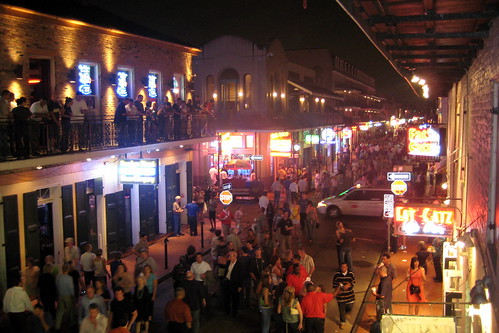The Seattle Nightlife Initiative is not what typical residents would expect
In issuing a report about the status of his Nightlife Initiative, the mayor said of the more than 2,200 people who took part in an online survey:
31.9 percent said they wanted a more active and vibrant nightlife scene in Seattle - the highest priority.
28.4 percent said they wanted later liquor service hours.
21.4 percent said public safety during nighttime should be improved.
It's the later drinking hours that get the most attention, and at a news conference at historic Washington Hall in the Central District McGinn said he would work with state officials in what could be a "years-long" process to try to extend the hours that people could get a shot and a beer at local watering holes. ...
McGinn said there was no concrete proposal to present to the state Liquor Control Board yet, but he envisioned a pilot program where certain businesses would be given a conditional license allowing them to serve alcohol past 2 a.m. Neighbors, business owners and regulators would then need to review how things were going.
Addressing the concerns of neighbors and bar owners has been a priority for McGinn and the City Council. In July, the mayor unveiled his 8-point plan for improving the safety of Seattle's night-life scene and reducing conflicts between drinking establishments and residents in more urban neighborhoods like Belltown. The plan called for allowing bars to serve alcohol after 2 a.m. But that would require the state Liquor Control Board's blessing. ...
McGinn said Seattle's push to encourage safe and active nightlife is about "public safety, there's economic reasons for doing this...it's quality of life (active nightlife) is why people want to be here."
--------
One of my earliest blog entries was about nightlife planning in Adams-Morgan in the context of the Adams-Morgan Transportation Study, comparing it to efforts in the United Kingdom, and my amazement that a Parliamentary Committee actually did a night time walkthrough in a nightlife district in London, as part of a report and response to government proposals to change nightlife regulations. Also of interest is the government report, Good Practice in Managing the Evening and Late Night Economy: A Literature Review from an Environmental Perspective.
Also the Greater London Assembly and the Borough of Camden did a study of Camden Town, which is also useful, as mentioned in the blog entry "Report on London's night time economy". From the summary of the report on Camden Town:
From the summary of Camden Town night time economy research study:
The Economic Development, Culture, Sport and Tourism Committee has carried out a scrutiny investigation into London's night time economy to find out what ideas and good practice exist to support the night-time economy and improve things for people who live side-by-side with London’s night life. Among the ideas that we found were:
-- The planning system makes it difficult for councils to have enough control over what goes on in London’s night-time areas, and there are fears that the new licensing laws will make this more difficult.
-- Londoners and business want the tube to run later, especially at weekends.
-- More needs to be done to attract a wider range of people into London’s town centres at night – this should include ideas such as later opening of museums and galleries and more non-alcohol related activities.
--There are good examples of how town-centre managers can help co-ordinate services and work with residents and businesses in London’s night-time areas.
--Good design is needed to make sure that new developments and refurbished properties in these areas include effective sound insulation.
--Design can also help by ‘designing-out’ crime through improving lighting and creating open spaces where people feel safe.
--Londoners and London’s businesses want the media to paint a more accurate picture of night-time London by not always concentrating on the problems.
Also see the article, "Governing Nightlife: Profit, Fun and (Dis)Order in the Contemporary City" from the journal Entertainment Law. The article focuses on how economic development concerns have trumped residential concerns and at the same time have standardized "acceptable" forms of entertainment at the expense of alternative forms.
Labels: arts-based revitalization, arts-culture, music-entertainment, nightlife economy, public safety, quality of life advocacy




0 Comments:
Post a Comment
<< Home